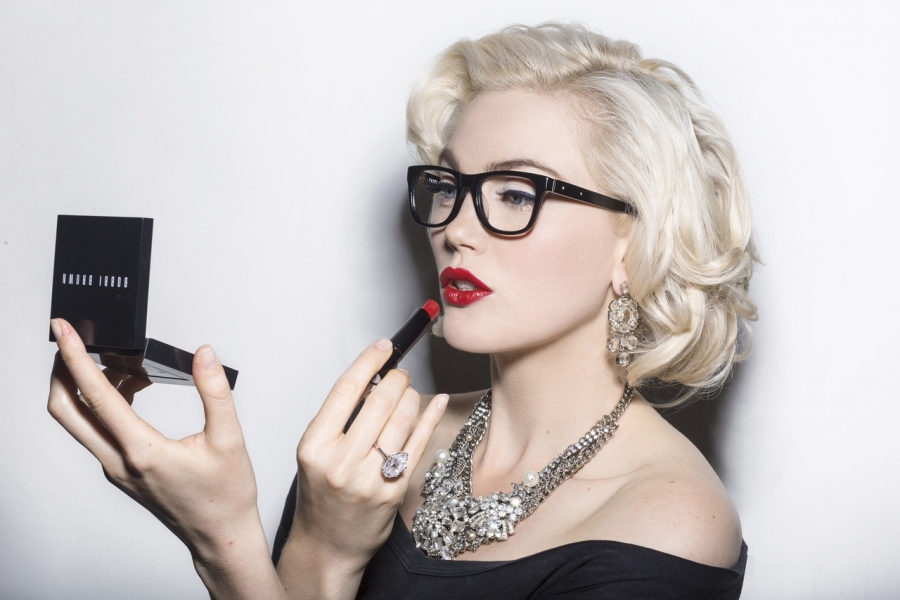|
Pharrell Williams: 'My music is so much bigger than me, and what I am'
Posted on: 03/11/14
Pharrell Williams wrote three of 2013's biggest tunes, and has made music with everyone from Daft Punk to Miley Cyrus. So why does he think he'll never be as big as Jay Z?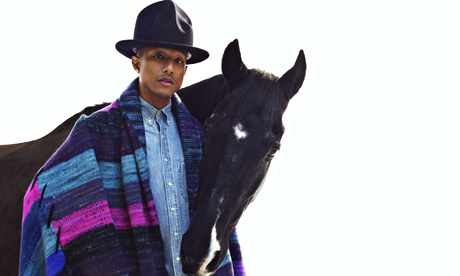 Pharrell Williams: 'I try to power through an adverse situation rather than just going crazy.'
Hat, Vivienne Westwood. Blanket, The Elder Statesman, Shirt, Rokit. Jeans, Levi's. Photograph: Gustavo Papaleo for the Guardian. Styling: Helen Seamons Mention Pharrell Williams to anyone who knows anything about music and they will start throwing figures at you: do you realise that Pharrell is responsible for 50% of the music played on radio, or is it 60%? Pharrell enthusiasts would have you believe that the producer-writer-musician is responsible for every hit record in America and the UK over the past 20 years, and it's true that he has been behind many of them (Blurred Lines and Get Lucky last year; before that, Britney Spears's I'm A Slave 4 U, Justin Timberlake's Rock Your Body, Snoop Dogg's Drop It Like It's Hot and numerous others). In fact, the stat people are thinking of goes back to 2003, when the Neptunes – the production duo Pharrell formed with his old school friend Chad Hugo – produced almost 20% of songs played on British radio and 43% on US radio. It's a remarkable figure. But what is even more remarkable is that at the age of 40, after more than six years without a major hit single as solo artist or producer, and when many of his contemporaries are considering hanging up their mics, Pharrell has gone stratospheric. He was behind the two biggest hits of 2013, co-writing and singing on Robin Thicke's controversial Blurred Lines (sample lyric: "I know you want it… I'll give you something big enough to tear your ass in two"), as well as dancing on the accompanying video (equally controversial: the men are all clothed and swaggering, the women passive and naked). He did the same for the second bestselling single of the year, Daft Punk's Get Lucky – and then scored his first solo number one with the ecstatic Happy, a Motown-influenced feelgood track as nonsensical as it is uplifting ("Clap along if you feel like a room without a roof"). Last Sunday, he performed it at the Oscars, shimmying along the front row with Meryl Streep and Lupita Nyong'o. All three of these tracks are the work of a pop genius in his prime: right now, nobody can conjure up infectious dance music quite like Pharrell. After more than 20 years in the business, he has just released his second solo album, G I R L (he insists on two spaces between each letter). What took him so long? We meet at Sony HQ in London, where he is playing the album to an audience for the first time. By Pharrell's standards, he is casually dressed: polka-dot shirt, grey cardigan, trademark outsized Vivienne Westwood Buffalo hat and a bizarre mix of jade, diamond, gold and water pearls hanging down his chest. He introduces the album in a hypnotically mellow voice. Forget Blurred Lines' "questionable lyrics and the aesthetic of the video", he says – this is what he really thinks about women. Then he goes off on one: how women could shut down our economy if they didn't go to work, how they could end the human species by saying no, how different the world would look and feel if 75% of its political leaders were women ("That's going to happen and I want to be on the right side of history when it does"). He's now really into his flow. It's women who buy his records, he says, women who love him, women who keep him in business, women are his everything. It's hardly Andrea Dworkin, but this does seem to be a partially reconstructed Pharrell. The album receives a rapturous reception from the journalists and critics, and he seems genuinely humbled. He clasps his hands in supplication – a gesture with which I'm going to become familiar. The next day we meet at a massive photographic studio in north London. It's massive for a reason. Two horses are being led in – a black stallion called Precocious and a delicate white mare called Crystal. I know musicians can be demanding, but has Pharrell really insisted on horses for his photoshoot? The man himself, meanwhile, is gleefully running through the rails of clothes. Every time he comes across another Buffalo hat, he whoops, particularly when he spots one in fuchsia. He's been wearing a version of this hat since the Grammys in January and has a keen interest in clothes. Before the interview, our fashion team had suggested we shoot him in the style of 20th-century artists – Hockney, Basquiat, Warhol – but the message had come back that this would look "too arrogant". Pharrell had another idea and sent in pictures of the sort of thing he was after: "The inspiration is Johnny Depp – romantic, moody portraits that are simple, iconic and timeless. Would love to work in a backdrop of a prefab home in the wilderness (if possible in a studio). Modern hippie." A natural collaborator, then, but you sense he doesn't leave much to chance. Then Gustavo, the photographer, asks him to nuzzle up to Precocious. Pharrell begins to sweat. Will he feed Precocious some pellets? He sniffs his hand with distaste. "Take your picture, bro," he says. "I'm not going to do this 20 million times. It's freaking me. You've got to get your picture now!" "You're loving it," Gustavo reassures him. "No, you're loving it," he says. "I'm not loving it. I have to wash my hands, like, for two years after this." He looks unnerved. Photographs done, we retire upstairs. Pharrell lies down on a sofa, then suddenly sits up. "Is this rude? Lying down?" I tell him it's fine, but I'm confused. I thought he had demanded horses for the shoot, yet he was so uncomfortable in their presence. He looks appalled, and is shocked into an upright position. "First of all, I don't demand. That's not in my character." Second thing is, he says, he had no idea there were going to be horses, he just didn't want to be a party pooper. "I try to power through an adverse situation rather than just going crazy." It turns out the horses were the Guardian's idea. His people had approved, and the only person left out of the loop was Pharrell. 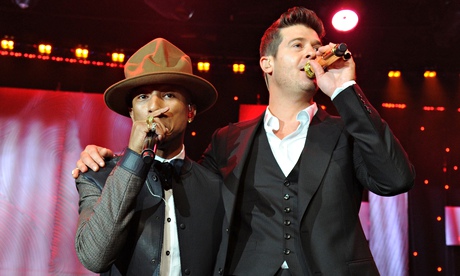 As he talks, I can't help staring at him: cheekbones you could cut diamonds on, skin that should belong to a 25-year-old. He is slight, but not as short as he looks on TV (5ft 9in). I ask how he's changed over the years. Well, he says, when he started out, he had no sense of purpose. And now? "I always want to put something medicinal into my music. To always have some nutrients. It can't just be shan't, d'you know what I mean?" To be honest, I don't. It sounds like pretentious, new-age gunk, yet on a second listen it does make a kind of sense. There is something nutritional in his recent music, a feeling of incredible uplift. As for the "shan't", I think he means that so much music is about hope denied and failure – he just wants to make music about possibility. Unlike many hip-hop artists, Williams was born into a world where he was told anything was possible. He is the oldest of three brothers, all born 10 years apart. His mother taught in elementary school in Virginia, his father was a handyman, and his much-loved grandmother, with whom he spent a lot of time while his parents were working, soon noticed his musical potential. She referred him to his first music teacher, Mrs Warren, who then passed him on to her husband, Mr Warren, and on to Mrs Edwards and Mr Sharps. Break one link in that chain, he says, and you might well have had a different story. He was given every opportunity, but he never expected success on this scale. After all, nobody who grew up in the resort city of Virginia Beach seemed to do much with their lives – it wasn't New York or LA, there was no music industry or Hollywood to aspire to. He thought he might make it as an art teacher. He was sent to a school for gifted children, where he met Chad at the age of 12. Young Pharrell played drums and sang, Chad played saxophone. They formed the Neptunes, a four-piece R&B band, which gradually morphed into their producer duo. Musically, the Neptunes have been described as anti-Phil Spectors. Where Spector added walls of sound, Pharrell and Hugo subtracted them, until you were left with something so spare it was little more than a few bleeps and a guitar riff. They blended genres, making hip-hop more rocky, reworking rock and pop to sound more hip-hop, and created hit after hit: for Kelis (Milkshake), Jay Z (Excuse Me Miss), Nelly (Hot in Herre), and on it goes. (And for themselves, too: Pharrell, Chad and Shay Haley also record as N*E*R*D, an acronym for the Pharrell-ishly gnomic No-one Ever Really Dies.) It wasn't a conscious decision to mix influences, Pharrell says. "That was the music I was accustomed to as a child. The radio station I listened to would play Queen, then Michael [Jackson], then Stevie [Wonder], then Genesis, then Madonna." The Neptunes realised you could have all that in one song. Through much of the noughties, their finger wasn't so much on the pulse, it was the pulse. Even in 2012, by which time Pharrell had supposedly lost his touch, he contributed to the two great breakthrough albums of the year: Frank Ocean's Channel Orange and Kendrick Lamar's Good Kid, MAAD City. Unusually for a producer, Pharrell's guest appearances manage to add kudos for artists far more celebrated than him – he is invariably cooler, a better singer (those falsetto nods to Curtis Mayfield) and dancer than those he is producing. It's a little like George Martin singing lead vocals on Hey Jude to give it that extra bit of polish, or Quincy Jones jazzing up Michael Jackson's Thriller by out-dancing him. And yet, despite a tendency to place himself centre stage, Pharrell never seemed attention-seeking, staying in the background until he made his first album, In My Mind, in 2006. Of all the albums he's been involved with, he says, it's his least favourite; not that it's bad, but there's an identity crisis at the heart of it. He performs in character as Skateboard P (his nickname at school) and seems lost: sometimes he's singing that he's too uptight and doesn't drink or take drugs; other times he's rapping in cliched boasts – his house is as big as Nasa, his jewels make him the pharaoh of the ghetto. "I didn't know who I was," he says. "I thought I knew who I was." Who did he think he was? "This competitive guy in the music industry, who admired my peers and felt he needed to compete with the races that they designed. But in life you're meant to race against yourself." Is it true that he has never taken drugs and doesn't drink? "Very rarely – I've had my share of pot brownies – but it's not my thing. I spend most of my time working." Is he a workaholic? "Yes, and lucidity is important to me." It's funny the first album is called In Your Mind when it was anything but, I say. He disagrees. "It was in my mind, but not in my heart. It was this caricature that I'd built in my mind, that fitted in with what Snoop and Jay were doing. Some of the things I said on that record, all the bragging, it's not necessary. It doesn't say anything about you, apart from how shallow you are." He never had a problem playing characters on other people's records, talking things up, because it wasn't meant to be him. He was playing a part in someone else's story. But suddenly, when this was supposed to be his life, it felt hollow. For most of his peers – Snoop, Jay Z, P Diddy – their music was their life story; they rapped about growing up in the projects, the drugs, the violence. Pharrell was basically a gifted nerd who went to a privileged school and liked to twiddle knobs. Where was his narrative? He rapped about his grandmother's love and his clean life, and that didn't feel right; he rapped about his wealth and his women, and that didn't feel right, either. "Your own offering to the world should be a signature of who you are and what you're up to, and I just hadn't figured that out. The difference is, now I realise there's something so much bigger than me. My music is so much bigger than me, and what I am." In other words, he's accepted that he doesn't have to tell a big story; that it's enough to sing about the great pop perennials, love and lust. He says the daftest thing was thinking he could compete with Jay Z. "Jay was never going to race with any of us. That was just my delusion." Why not? "Because his career runs laps round people. And he runs laps round people, lyrically. He's a philosopher and a poet." Having interviewed Jay Z, I can understand why Pharrell might feel inadequate next to him: he may be cuter, sexier, more imaginative, more musically versatile, but Jay Z has a huge personality and charisma, and is a man perfectly at ease with himself. The night before, when Pharrell introduced G I R L, he said the album was not his story, that it was his paean to women. It was interesting that you started by talking about Blurred Lines, I say, and your "questionable" taste in women. "No, perverse," he corrects me. "Some of the words are perverse." As well as Blurred Lines, he means even more extreme songs such as N*E*R*D's Lapdance, which has lyrics and a video that are little more than a soft-core porn extravaganza. Does Blurred Lines objectify women? "Well, it says, 'That man is not your maker.' There's nothing objectifying about that." It's an argument I've heard him use before: that the song's central message is one of empowerment. So are the lyrics taking the piss out of the seedy Robin Thicke "character"? Pharrell looks confused. "No, it's not taking the piss out of anyone. It's just saying that there's blurred lines where a woman wants to do something, but she knows she shouldn't." This interpretation takes us back to the original criticism, and the reason the song got banned by a number of British student unions: that men are telling women they know better than they do what they want, and are not taking no for an answer. Does he think it is fair that Blurred Lines was described as "rapey"? He answers the question before it's out. "I respected it. I'm not a woman, so I can never tell them how they feel. That's why this album is a gesture. I'm just trying to make it clear what I feel." So is G I R L an apology? He shakes his head. "I would never apologise for saying, 'He's not your maker, not your god.' In fact, a woman made him. A woman made me. Regardless of who you are, you came through those golden doors." What did Helen, his wife, think of the video? "She liked it." Helen, who is helping herself to a buffet lunch, nods. "A lot of women liked it," he says. "There are just certain women who are uncomfortable with certain things, and I respect that. I would never challenge that. What I did do is challenge myself to rise to the occasion and offer a full spectrum of my affinity for women, and not just the perverse side. So that's what this project is. There is no concession in my taste for them, but there's also no concession in my core beliefs as it pertains to them and their pertinence in society and their pertinence in this world, on this planet." He's right about that balance: sure, there is respect and romance on G I R L, but there is also still plenty of bump and grind. Now that we've established the pertinence of women on the planet, I ask if he considers himself political. "No." He's simply not interested? "I am, because it directly affects us all, but I know what my touch points are in life: education and equality." Pharrell has started his own educational charity, From One Hand To Another. Is this similar to the school for gifted children he attended? "No, it's more about tutoring, helping children not only through their studies, but to contribute to their outlook, and to understand the gravitas in education. Without education, you have no tools; and with no tools, you can't function." It has been estimated that in the 12 months up to September 2013, Pharrell Williams earned $9m. Much of this comes from his business interests – he runs a YouTube station, makes jewellery and furniture, and has two fashion lines (Billionaire Boys Club and Ice Cream Clothing), as well as the music. We join Helen at the buffet and I ask her if there is anything Pharrell is bad at. She thinks, and thinks some more. Oh come on, I say, what's he really crap at? "Sport," she says. She pauses. "He's not crappy, though." If she had to restrict him to one career, which would it be? "Music." As an artist or producer? "Artist." "Wow!" Pharrell says, "I would say producer. As an artist, I'd just be…" "Stuck?" Helen says. "Yeah, boring, I'd just talk about me all day. What kind of meatballs are those, H?" "Veal," Helen says. "Wow!" Pharrell says. They have a lovely, relaxed relationship. During the shoot, whenever there is a break, he goes off to chat with her. He once advised about relationships that you should "get with your bestie". Does he still stand by that? "Yes, because then you can talk about anything." They have a five-year-old son, Rocket Man, whom Pharrell describes as "the best song I've ever co-written". He sits down with his meatballs, coleslaw and salad, clasps his hands together, shuts his eyes and prays silently. Does he always pray before eating? "Course. How could you not think where it all comes from? How could you not thank the Master?" He describes himself as "a Christian on paper, but really a universalist". Has he become more religious over time? "No. God has always been my friend." He says he hates conflict, but it's not always possible to avoid it in the litigious world of music. He and Thicke are being sued by Marvin Gaye's family over Blurred Lines – they claim it rips off the Gaye song Got To Give It Up. Meanwhile, will.i.am has sued Pharrell over his "I am OTHER" trademark, claiming it is too close to his "I Am" branding. Has that dispute been resolved, I ask. "I don't know," he says. For the first time, his face frosts over. "Can you use the trademark now?" "I never knew that I couldn't," he says tetchily. "But weren't you in dispute with will.i.am about it? "I don't know who he's in dispute with." I'm surprised you are at war, I say. I always thought you were friends. "I always thought so, too," he says. You're similar in so many ways, I say. Obsessed with gadgets and technology and education. You even use similar language. "Listen: we do not use the same language. We're not anything alike." You're not? "No. But here's the thing. That which makes us different is what makes us special. So God bless him." It doesn't sound like the most heartfelt of blessings. Pharrell's music has changed over time: the bleepy minimalism of the early hits has been replaced by the more joyous harmonies of his 2013 hits. This is pure pop, music as natural serotonin. Could he have written a song like Happy a decade ago? "No," he says. Why not? He smiles. "Because the word 'sweat' would have been in there, and 'booty'. All those words would have been in there." At the album playback, the head of Sony talked about Pharrell's renaissance. Today, Pharrell says he's never been away, but yes, he is astonished at his current popularity. "I am freaking out a bit." He stumbles over his words. "The popularity is not for me. It's cos I just gotta… It's about, you know, services to others. I know my intention, and my intention is not to make it about me." Fine, but what if the album is so successful that the moguls say, sod the producing, we just want you to be a solo superstar? He looks horrified, and his answer sounds more a plea than a statement. "I have to produce people! I have to work with people. It's my only means of learning, my only means of colliding with foreign energy. It would be like asking Captain Kirk to just stay on Earth." • G I R L is out now on RCA.
COMMENTS
Be the first to post a comment! Post A Comment:

|
.gif)


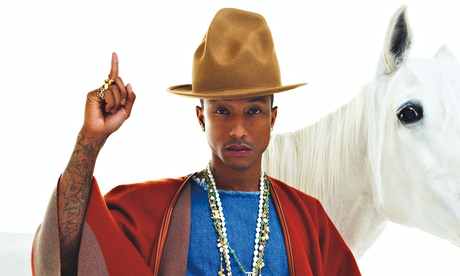
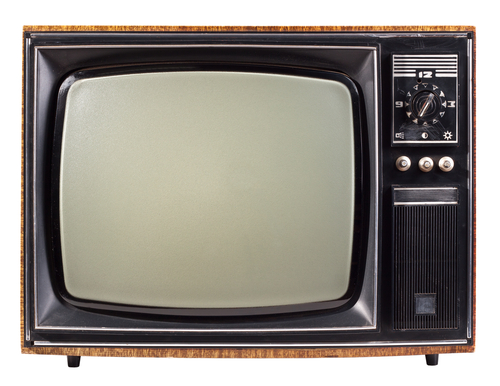
.jpg)

